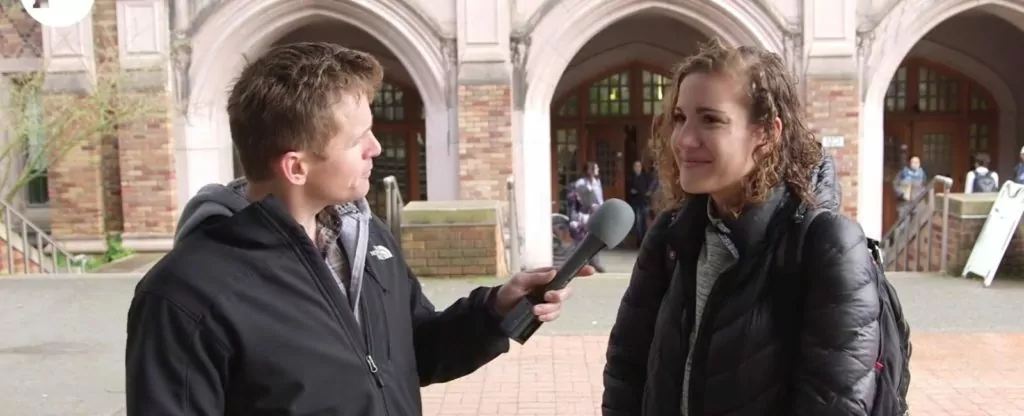Keep long lists, and short accounts
*****
As I pad down the hallway to my home office, sometimes I’ll look down and remember that the laminate planking I’m walking on was laid down with the help of friends. I’m not the best with a hammer or saw, so while I did some of the sweating, my friends brought the skill. I was so very thankful at the time, and now whenever I remember it’s a warm feeling still.
As of late I’ve been remembering these friends more often because of a curious book. It’s about a guy who set out to personally thank every person involved in getting him his morning brew. There’s the barista, of course, but a farmer had to grow the beans, and then there’s all the people in between – it turns out there are an astonishing number of people involved in a simple cup of coffee. Who picks the blend? How many are involved in the actual roasting? Someone had to design the lid (there’s quite some engineering to it), and then there’s the coffee cup sleeve – there wasn’t always a sleeve – and when we remember that coffee is about 1 percent beans and 99 percent water, then there’s a whole municipal water department to thank too. And who makes the pipes that carry the water? We haven’t even gotten into the boats and trucks involved and all the crews who man and make them.
A long list to be thankful for
This guy wanted to personally thank everyone involved but quickly realized that might amount to millions. So he narrowed it down to the one thousand most directly involved.
G.K. Chesterton said that, “When it comes to life the critical thing is whether you take things for granted or take them with gratitude,” and this book was an eye-opener for just how many blessings I’ve been taking for granted. If thousands – millions – are involved in making a cup of coffee, how many could I thank for everything I find even on my short journey from bed to shower each morning? How many designers, engineers, miners, and factory workers were involved in making the Kindle that wakes us up each morning? And what about our bedding, the bedroom carpet, bathroom tiles and that long-shower necessity, our tankless water heater? I normally clomp past it all, but I could choose to start each day just looking around in amazement. As Chesterton reminds us, “gratitude is happiness doubled by wonder.”
The author of this book is a sometimes-blasphemous atheist (which is why I’m not sharing his name – I don’t want to promote him) but even as an atheist he recognizes that his disposition to grumpy ingratitude isn’t good… for him.
“…gratitude is the single-best predictor of well-being and good relationships, beating out twenty-four other impressive traits such as hope, love, and creativity. As the Benedictine monk David Steindl-Rast says, ‘Happiness does not lead to gratitude. Gratitude leads to happiness.’”
But why is thankfulness next to joyfulness? He doesn’t seem to know, but we do. God created us to glorify Him and then gave us innumerable reasons to do just that. And because He loves us, He so fashioned mankind that when we do what we were made to do, it is good for us. And He’s so gracious that even when we do a half measure, thanking the people around us, but forgetting the God Who made us, it is good for us still.
Sometimes we need a Jordan Peterson or Elon Musk – someone outside the Church – to remind us of what we have, and what unbelievers don’t. I was struck by that here, when this author shared,
“…I’ll occasionally start a meal by thanking a handful of people who helped get our food to the plate. I’ll say, ‘Thank you to the farmer who grew the carrots, to the truck driver who hauled them, to the cashier at Gristedes grocery story who rang me up.’”
This fellow is “praying” to people he knows will never hear him because he feels such a need to express gratitude. To quote Chesterton again, “The worst moment for an atheist is when he is really thankful and has no one to thank.” When I look around the dinner table at the food that’s there once again, and the family gathered around, and when I really stop to think of all I’ve been given here, my heart can’t help but swell, but now there’s another blessing I can bring to my giving, loving Father – I can thank God that I can thank God!
Keeping short accounts
But if Christians have so much to be thankful for, why aren’t we more joyful? Why am I too often grumpy, sullen, and short to the people God has gifted me?
Part of it is that we take so much for granted. We easily forget what we have, so there’s something to keeping a thankful journal. Around Thanksgiving each year my wife gets some notecards and encourages us each day to draw something we’re grateful for, and then we put the cards up on the hallway wall. It’s quite the display by month’s end.
But even more of it is taking for granted the biggest gift we’ve been given: forgiveness.
In his booklet How to Maintain Joy in Your Life, Jim Wilson shares how, upon his conversion, he experienced joy liked he’d never had chasing after the world’s substitutes. But as this Navy midshipman set out on his Christian journey, he found that joy diminishing. And it continued diminishing for the next three years. Sitting in the stateroom of an American destroyer stationed in the Sea of Japan, he was struck that for the 3 years since his conversion he hadn’t really been confessing his sins. Oh, sure, he’d confessed some sins, but there were many he hadn’t taken to God for all sorts of reasons. When he confessed his sins, God forgave him, and once again he started feeling that same joy.
Guilt is a weight. But, thanks to Jesus, it’s one we don’t have to carry. Guilt is also God’s way of getting our attention. As it says in Hebrews 12:11:
“No discipline seems pleasant at the time, but painful. Later on, however, it produces a harvest of righteousness and peace for those who have been trained by it.”
Jim Wilson was trained by that discipline, but like the rest of us, he was a slow learner.
“I would again disobey, get disciplined, and lose my joy. This time, instead of not confessing, I would confess after a while… ten hours, a week, 2 weeks.”
Eventually he realized that he didn’t have to wait to confess his sins – he could “keep short accounts.” Then, instead of a series of ups when he was forgiven, and downs when he wouldn’t go to God (or at least not yet), he started to experience ongoing joy.
“Sometimes I went for a while before confessing, but generally I would confess right away or within a couple of hours. I’m not saying I have not sinned in those years…. But I have a low tolerance for discipline. I do not like it. As long as I am unrepentant, the discipline stays on me, the hand of the Lord is heavy. I can remove the discipline of the Lord by repenting now.”
For those of us who’d prefer to stay miserable, he concludes his booklet with a list of what you can do instead of confessing your sin. You can justify, excuse, or hide it. You can blame someone else, procrastinate, or stand on pride. A favorite for many is “generalization,” where you readily admit “mistakes were made” without really getting into the dirt of what you did. But tricking yourself doesn’t trick God, and you can’t enjoy Him if you are hiding from Him.
Conclusion
If you want to be happier, it isn’t complicated.
Open your eyes wide, and see the world as it really is. There are troubles, but then there is God, and He continues to bless us beyond any measuring. And the biggest of those blessings is that we can know for certain – we can count on Him – that when we come to our Father with our sins, He will always and forever forgive.
That’s got me a little verklempt but I can assure you, they are happy tears.












